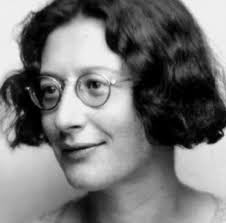Up until now, we haven't been thinking about our freedom much, and we haven't been defending it properly.
In what way did we let down the cartoonists at Charlie Hebdo, and all the others who were killed? Did we fail to supply enough police and military defence? The Kouachi brothers supplied with kalachnikovs and the skill to use them were able, as free French citizens, to drive into Paris one morning, shoot the two policemen at the door of Charlie Hebdo, force the person at reception to open the door (on pain of killing her toddler whom she had just collected from daycare) and shoot anyone who offended them.
How many armed soldiers, helicopters, spies, politicians, military commanders are needed to protect each person considered offensive by some extremist or other?
Just as cancer needs a 'violent' response once developed, cut out surgically, or attacked by known chemical and radiation killers, so a terrorist at large has to be stopped by violence. But the real protection of freedom, one which prevents terrorism from developing and gaining hold, is gained not by violence, not even by physically non-violent cyberterrorism (think Anonymous), freedom is protected by thought - the individual and collective thinking of the many.
We are representing that in the immediate 'Je suis Charlie' response - we 'understand' straight away that you can murder one free-thinker, but what are you going to do when faced with all of us free thinkers, multiplied and multiplied? We've written a sign of it on our foreheads, the archetypal place of thought, but have we understood freedom?
In a way, the right kind of hate-thinking directed at the right moment allowed the birth of the monster that the Kouachi brothers became. It's happening again and again - hate-thinkers finger pointing suicide killers into action. Farid Benyettou took the person who was Cherif Kouachi-so-far, armed him and made him ready for action with the following thought, here in Cherif's words; "Farid told me that the scriptures offered proof of the goodness of suicide attacks. It is written in the scriptures that it's good to die a martyr".
Chains of influence...where does it start?
 |
| Abu Qatada, who influenced |
 |
| ....Djamal Beghal, who influenced... |
 |
| ...Farid Benyettou.... |
 |
| Who influenced Cherif Kouachi with hate thought... |
 | ||
| Anwar Al-Aulaqi,American of Yemen origin, he lived his childhood in Yemen and returned to America to study, his father was a prominent academic and public figure. |
The finger-pointing indicates 'I know The Law from on High', The Law from ancient times, when humanity was a toddler and needed strict guidance and protection, but which no longer applies to our times, when we struggle and strive to create a free society, to gain individual independence. We still have sacred laws though, individualised and truly felt, as we evolve, as we try to become who we really are. Personally, I would avoid denigrating, defiling what other people hold sacred, this is because I hold other people as sacred (or at least potentially so, and at heart). However, I would say 'je suis charlie' because freedom of expression is vital for our evolving society, and being offended by someone is not a reason to kill even though it can incite our passions.
How do we treat those in our society who are 'out of date', who try to impose their law as The Law?
Abu Hamza al-Masri, ex-Imam of the North London Central Mosque arrived in England from Egypt and commented that England was "a paradise, where you could do anything you wanted." - he was someone not used to freedom and quite unable to understand it or live by it, who used his time in paradise to learn how to destroy it by terrorism, and who was thrown out of his Mosque and paradise and into an American prison for life. What is this freedom paradise that we are so proud of?
The word that came up over and over again in the crowds gathered after the Charlie Hebdo attack was 'Liberté' - freedom. What is freedom? Why is it so important to us? We're almost there with the feeling-thought which is dug out by this attack; Je suis Charlie. Terrorism teaches us that we can't leave it to philosophers, intellectuals, human rights campaigners and politicians to do the thinking, we must all think freedom.






